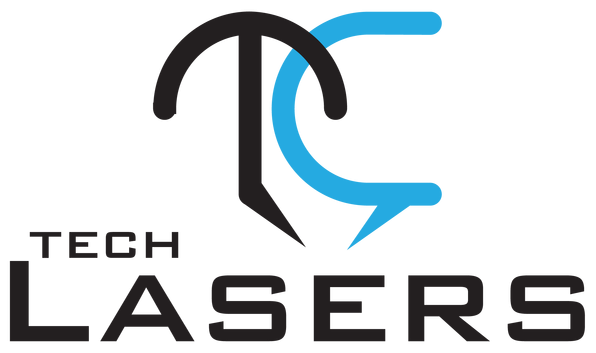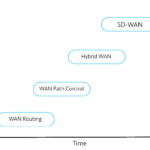Introduction to Off-Page SEO
Off-page SEO refers to techniques used outside of your website to improve its visibility and ranking on search engines. It encompasses a variety of efforts that help enhance your site’s credibility and authority. Unlike on-page SEO, which focuses on optimizing individual web pages, off-page SEO builds the site’s overall reputation. Engaging in off-page SEO services can greatly influence how search engines perceive your website’s trustworthiness and relevance.
While on-page SEO is about fine-tuning your website’s features, off-page SEO expands your online footprint by leveraging external signals. This practice involves multiple strategies, seamlessly integrating with your overall marketing plan. From backlink building to social engagements, off-page SEO is a pivotal component in the SEO ecosystem. The collective impact of these strategies can make or break your search engine ranking, making it crucial for long-term success. Furthermore, holistic SEO strategies often emphasize harmonizing on-page and off-page efforts for optimal results.
Importance of Backlinks
Backlinks are endorsement links referring to your content from other websites. Your website will rank higher the more backlinks it has that are of excellent quality. Search engines are informed that your material is reliable and valuable by authoritative backlinks. Because of this, obtaining backlinks is essential to off-page SEO strategies and plays a crucial role in search engine ranking algorithms.
Generating quality backlinks requires strategic efforts, such as creating shareable content, building relationships with influencers, and guest posting on reputable blogs. Thanks to these excellent backlinks, your website gains credibility and ranks higher in search engine results. Furthermore, constant backlink building ensures your website is competitive by supporting long-term SEO performance. When seeking backlinks, always put quality before number to avoid search engine penalties. Monitoring your backlink profile is essential to ensuring the links are relevant and authoritative.
Social Media Marketing
Participating in social media marketing has the potential to enhance your off-page SEO endeavors greatly. By distributing your content on several social media platforms, you can increase its visibility and likelihood of gaining backlinks. Additionally, platforms can drive traffic and boost your online presence. The social signals generated through these platforms can positively impact your site’s ranking, as search engines consider social engagement.
Creating interesting material, figuring out your target audience, and communicating with them regularly are all part of creating a strong social media strategy. By regularly disseminating insightful content, you may create a devoted following that promotes and spreads your work, which will improve your SEO even more. Furthermore, leveraging features like live videos, hashtags, and stories can create more touchpoints for audience engagement. Analyzing your social media performance frequently allows you to refine strategies and maximize engagement. Also, collaborating with micro-influencers on social platforms can introduce your content to niche audiences, fostering organic growth.
Influencer Collaboration
Collaborating with influencers in your niche can substantially boost your off-page SEO. Influencers have established audiences that trust their recommendations. When influencers link back to your content, it increases your credibility and drives targeted traffic. Influencer marketing delivers significantly higher ROI than traditional forms of digital marketing, making it a highly effective strategy.
For influencer marketing to work, find influencers whose audiences are similar to your target market. Kindly give them products or content of the highest caliber they can recommend to their audience. Establishing enduring connections with influencers can increase consistent website traffic and authority. Joint ventures and chances for cross-promotion can also arise from regular involvement and collaboration. This mutually beneficial partnership increases brand exposure and loyalty as well as SEO. Developing customized influencer partnerships campaigns can also guarantee congruence with your brand’s principles and objectives.
Guest Blogging
Guest blogging involves writing posts for other reputable websites within your industry. This strategy helps build your brand authority and gain valuable backlinks. Ensure your guest posts are informative, well-researched, and valuable to readers. Avoid making them overly promotional, as this can turn off readers and potential hosts.
Successful guest blogging requires identifying high-authority blogs within your niche, pitching relevant content ideas, and delivering well-crafted articles. Contributing regularly to reputable platforms can help you become recognized as a thought leader in your area and build brand awareness. More backlinks, improved search engine rankings, and increased organic traffic to your website are all possible outcomes of these efforts over time. Keeping up a regular guest blogging schedule helps draw in new readers and keeps your business at the forefront of their minds. Moreover, you can strengthen your connection with the host websites by providing comprehensive data and interaction metrics after guest articles.
Brand Mentions
Brand mentions in articles, social media posts, and other online content can improve your site’s authority and search engine ranking. Even without a direct link, brand mentions signal to search engines that your business is being talked about positively, which can indirectly boost your SEO. These mentions can come from news articles, blog posts, social media discussions, or reviews.
Build strong relationships with industry influencers and media outlets to increase brand mentions. Providing expert opinions, press releases, and engaging content can result in your brand being mentioned in high-authority sources, further enhancing your online reputation. Monitoring and responding to mentions through social listening tools can also help maintain a positive brand image. Engaging with users who mention your brand can foster a community around your business, leading to more organic mentions and elevated brand presence. Incorporating these mentions into your content strategy can highlight the breadth and impact of your brand’s influence.
Measuring Success
Tracking the success of your off-page SEO efforts is essential to refining your strategy. Utilize analytics tools to monitor backlinks, traffic, and social media engagement. Regularly assess your performance and make adjustments where necessary to keep improving. Keeping a close eye on these metrics helps identify which strategies are working and which need tweaking.
Analyzing key metrics such as referral traffic, backlink growth, and social shares provides insights into the effectiveness of your off-page SEO initiatives. Reviewing these performance indicators ensures your strategy aligns with your overall SEO goals. Additionally, monitoring competitor strategies can provide valuable information to enhance your approach. Setting clear KPIs and benchmarks will also help track progress and measure the ROI of your off-page SEO activities. Continual education and staying updated with the latest SEO trends and algorithm changes ensure that your strategies remain relevant and effective.

 Why Your Link Building Efforts Might Fail
Why Your Link Building Efforts Might Fail  How to Request or Give Remote Control in a FaceTime Call on iPhone
How to Request or Give Remote Control in a FaceTime Call on iPhone  The Rise of Intelligent Automation in Business Operations
The Rise of Intelligent Automation in Business Operations  The Best Ideas for Designing Your Custom Printed Ring Binder
The Best Ideas for Designing Your Custom Printed Ring Binder  How Technology is Changing the Way We Play Hearts
How Technology is Changing the Way We Play Hearts  The Rise of Open Source: A Journey to Innovation and Collaboration
The Rise of Open Source: A Journey to Innovation and Collaboration  How SD-WAN Is Revolutionizing Business Networks
How SD-WAN Is Revolutionizing Business Networks  Effective Digital Advertising Strategies for Modern Businesses
Effective Digital Advertising Strategies for Modern Businesses  Tips for Marketing Dental Packages: Easy Ways to Grow Your Reach
Tips for Marketing Dental Packages: Easy Ways to Grow Your Reach 